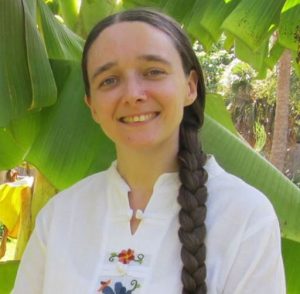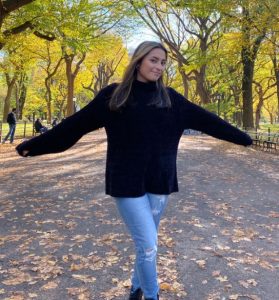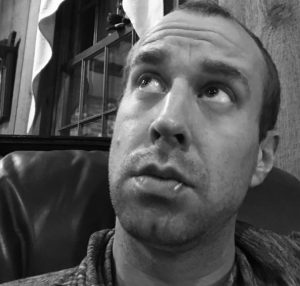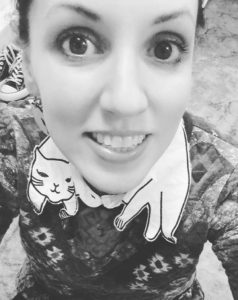Archives
Take This Transmission For Instance
by Rosa Sophia

I have no vehicle for this T18 four-speed transmission
Dana Model 300 transfer case.
This transmission
sat in my father’s shed after his four-wheeler crushed him
in the Pennsylvania woods, sat in the dark after a helicopter
carried my father off the mountain, waited in silence
as my father fell comatose, this transmission ignored
by my stepmother as she sold and gave away my father’s tools
couldn’t be bothered with when my family pulled the plug
couldn’t be reconciled the day I never flew to my father’s funeral.
It sat in this dark, dusty shed for eight years after my father’s death.
Now it doesn’t fit anywhere.
It couldn’t be lifted by my brother Mark in a rainstorm
in the mud two-handed, couldn’t be budged by thought,
ingenuity or reason, 240 pounds of cast iron needed a truck,
my cousin Barry behind the wheel with chains and a trailer.
Caked in grease it came to me with loosened bolts
dirt inside after my cousin inspected it closely, put it in neutral,
gave me advice I can’t remember on shifting gears, while together
we stabbed a perfect circle in my new car’s rear fender
with the spline of this transmission as it hung from a thick chain
like a locket, a reminder, a note as if to say, this doesn’t fit anywhere
before I drove it in the back of my new car 1200 miles
to Florida dragging gas mileage.
Now this dirty transmission hangs from a chain in my garage
where I twirl it after I dragged it from the trunk of my new car
crashed it into my knee and scraped my skin, slammed my wrist
the next day it’s swollen and gray, arm scraped, elbow bruised
dragged the hulking metal on the fender, added marks to my perfect circle
extra dings, a reminder, a note as if to say, take this transmission for instance
now it doesn’t fit anywhere.
Rosa Sophia grew up in Pa. and is working toward an MFA in Creative Writing at FIU in Miami. Her poem, “Take This Transmission for Instance,” won Runner-Up in the 2020 FIU Student Literary Awards. She holds a degree in Automotive Technology, and is also the managing editor of Mobile Electronics magazine.
Pentecostal
by Steve Burke

The middle-of-the-night ride through the fogged-in hills,
the way the road can’t help but follow.
Curves the truth headlights try to defy.
The way the filament of infection
is creeping up my daughter’s arm: the first illustration
in a monograph on spider toxins.
The way something seems to be speaking through you
even when you don’t want it to.
Steve Burke’s poems have been published in a number of journals & magazines; has had two chapbooks – After The Harvest & For Now – published by Moonstone Press. He worked for many years as an obstetric nurse; lives in the Mount Airy section of Philadelphia.
Espresso
by Steve Burke

“This world is the other world too.”
– Tomas Tranströmer
Sometimes the first sip is enough: shadow
ribboning into the depths, the casting
of a spindly Giacometti striding-figure.
Skeleton of music, of imagination, out
on a lawn I would keep trimmed religiously,
a caretaker sunburnt and weathered
in the name of Stillness – a stillness
that makes a case for inherent grace, that
reminds us how we move through this world,
a non-stop exchange of touch.
Alberto, you’ve confirmed what I’ve long suspected:
the soul resembles bone. Hard but darker,
coarsely-surfaced enough to skin knuckles.
But which, if the ground begins to shake,
can be gripped as if embracing another ‘you’ –
the one you’re glad to see, the one who
runs next to your speeding train, taps your window,
then gives a little wave before peeling off, laughing,
toward the other world.
Steve Burke’s poems have been published in a number of journals & magazines; has had two chapbooks – After The Harvest & For Now – published by Moonstone Press. He worked for many years as an obstetric nurse; lives in the Mount Airy section of Philadelphia.
Letting Go of God
by Claire Scott

My mother thinks she’s a saint.
Her website promises spiritual guidance,
thinner thighs and a cure for infected cuticles.
She calls herself Worship Warrior,
offering prayer groups in our shabby living room
filled with plastic Jesuses and plates of Ritz Crackers.
I sit on the floor, my mitt on my lap
with its soft smell of leather and I dream about
home runs while the women drone on about redemption
And sad-eyed Jesuses stare down
from their crosses. Hours of boring prayers instead
of stealing bases, hours of hymns instead of pitching no hitters.
My first tooth fell out when I was five, I tucked
it under my pillow and the next day found a dollar
that looked like the torn dollar my mother had yesterday.
Each Christmas we left cookies and milk
for Santa, waited for hooves on the roof, until
I realized all the tags were in my mother’s handwriting.
I hear my mother guarantee everyone a seat next to God.
Dots connect. My heart crumples once more.
I grab my glove and head to the park.
Claire Scott is an award winning poet who has received multiple Pushcart Prize nominations. Her work has been accepted by the Atlanta Review, Bellevue Literary Review, New Ohio Review, Enizagam and Healing Muse among others. Claire is the author of Waiting to be Called and Until I Couldn’t.
It can be dangerous
by Varsha Kukafka

It can be dangerous to wake up in the morning.
And go downstairs.
Or back upstairs.
It can be dangerous to read a poem.
Or answer the phone. Or care.
Or get on the highway. Or say goodbye.
Yes, it can be dangerous.
It can be dangerous to look at the sky. Or ask a question. Or cry.
Or open a letter. Or answer the door. Or buy a ticket.
Or feel forlorn. Or feel.
It can be dangerous to read a poem.
Or to go to the ocean. And love that smell. And feel that swell.
Or to think about telling a secret. Or tell.
It can be dangerous to keep old notebooks. Or throw them away.
Or to remember. Or forget. Or never say.
It can be dangerous to go somewhere new. Or never go looking.
Or to cook. Or not cook.
It can be dangerous to read a poem.
Or go for a swim. Or a walk.
Or talk to your sister or mother or daughter or son. Or not talk.
It can be dangerous to pet a strange dog. Or to say yes or no.
Or look in the mirror. Or sneeze.
It can be dangerous to write a poem.
It can be. It will be. It may be.
Oh yes, it can be dangerous to breathe.
It can be. It will be. It may be.
It can be dangerous to stop.
Or to start over again.
It can be dangerous.
Be dangerous.
Varsha Kukafka is a Philadelphia native who began writing poems at age six. Her work has appeared in AGNI, Salamander, Painted Bride Quarterly, The American Journal of Poetry, and elsewhere, as well as in limited edition letter press broadsides with images from her visual art. She worked professionally as a tapestry weaver and served as an assistant district attorney for twenty years.
Love Letter to South Jersey
by Maya Georgi

Your kiss is a prayer
to winding back roads,
one block farms,
and the river that connects us to Philly’s humble skyline.
Your hands are tuscany yellow,
Jersey summer sweet corn
and sudden sunflower fields
on the way to the shore.
Your jet black curls swing like oak leaves
in a wild canopy,
hiding oasis wonders
and springtime bonfires.
Your drawl is cicadas
humming at twilight
right before their wild envelop,
a song amidst suburbia’s lull.
Your grenadine smile is the receding sun
warming this sliver of the Pine Barrens,
a watercolor on the Delaware
holding us golden before it sleeps.
Maya Georgi is a Latinx writer and South Jersey native. She grew up on the many bridges between Mount Laurel, NJ and Philadelphia, vacillating between suburb and city. Maya is a recent graduate from Marymount Manhattan College in New York City. She has been previously published in The Carson Review.
Sometimes I Need To Be Dragged
by Jeff Klebauskas

Steve hasn’t left his apartment in a week. The panic attack hit him while he was walking to the restaurant he works at over on 12th and Passyunk. Katrina told me that he told her that every time he sees the glowing La Birra sign hanging over the building’s brick façade, it happens; he hears a sound like an elongated sub-level bass drop that seems to be coming from deep inside his own brain—BOOOOOM—then his vision starts to dim, and he has to run back home before he faints.
He’s sitting on the bare futon across from me. I watch him pull strands of tobacco from a plastic pouch then haphazardly scatter the dried leaves along the concave of a white zigzag. The tobacco that doesn’t make it into the final product lands on the coffee table underneath his outstretched arms, where it lays with all the other tobacco that didn’t make it into the previous final products. He doesn’t seem to notice the pile forming as he twists the cigarette and lights up. This is the ninth time I have seen him do it, and I’ve been here for, maybe, forty-five minutes.
We’re posted up in his third-floor apartment on 5th and Mifflin in his half-assed living room with its two decrepit pieces of furniture, its random posters hanging unevenly on the wall, and its single wooden bookshelf in the corner that looks like it was made by him in shop class back in seventh grade because it was.
He’s lying on the futon now, shirtless and supine, with his knees bent and pointed at the ceiling like his eyes. Gravity is pulling the hem of his black mesh shorts down mid-thigh. There’s a gigantic tear in the fabric running up the right leg. He takes a drag, exhales the fumes and says, “I just…” He stops to spit out stray bits of tobacco then continues. “I just couldn’t maintain anymore. I had to quit that job, felt like my heart was dying.”
I’m over here on the beat-up loveseat, finishing off my third bottle of Red Stripe, staring at the flyers on the wall with our defunct band’s name on them.
There’s us in Chattanooga, 2006. There’s the promo poster for that east coast tour we did. There’s that basement show we played in Long Island City in front of seven people. We left with fifteen dollars and an eighth of dirt weed.
Decent memories, but I’m just not into music anymore. I uprooted myself, settled in a city that isn’t my own in search of something more than what I was given. I’m hanging on because I don’t know where else to go. I’m thirty now. Too old to start over, too old to move forward. I’m stuck.
Pete sold his guitar, moved back to Scranton. I haven’t talked to him in almost a year, but I heard he’s got a job with the Sewer Authority. I guess that means he’s doing okay. Katrina will be fine. She’ll do something with that Psychology degree. So now it’s just me and Steve and by the looks of him, I’m starting to worry it’s just going to be me soon.
I slam the empty bottle down on the table and check the stash by my foot on the floor. There’s only two left, but there’s more in the fridge. I grab a fresh one, pop the top off with Steve’s Bic, start pounding it down while he laments some more.
“We weren’t supposed to end up like this, Josh. We were supposed to have an impact.”
I try to balance him out.
“Katrina really wants to talk to you.”
Which is true. She said he had stopped speaking to her, that when she told him she was leaving he just stared at her like she was an inanimate object. I told her I’d go see him. So here I am. And he hasn’t gotten up from the futon the whole time.
I lay down some Hallmark card shit.
“She cares about you. Don’t push her away.”
“I’m just gonna keep disappointing her. Everything’s too fuckin’ much.”
I know exactly what he is talking about. It happened to me when I was going into work a few months back. I was on the 57, heading west on JFK Boulevard, packed into the bus like a book on some bibliophile’s shelf, each person a different story, a different set of themes, a different purpose. My brain said, Josh THINK, and I thought, there’s so much pain out in the world, just floating, and my problems are just a speck, a dot on the map amongst billions of dots. I am no longer on the outside looking in. The collective mind frame applies to me. I am just like everybody else.
I bolted from the bus when it stopped at 19th Street, four blocks before I was supposed to get off. I ran through the swarm of people crowding every single inch of the sidewalk, trying to get away from something, terrified because I had nowhere to run to. The panic attack left me gasping for air on a bench in Rittenhouse Square, grasping my cellphone as if I could call someone for help. I ended up calling in sick instead. I just couldn’t mop floors and scrub toilets that day. I couldn’t bottle up the emotions that came with the realization that my existence is inconsequential enough to make it through the eight-hour shift. I hailed a cab, went home, and collapsed on my bed.
Now I just walk everywhere, haven’t ridden a bus since.
But I’m good. I’ve scarred over. Steve will too if he just stops caring, if he comes to grips with his own worthlessness and realizes there is no point to any of this, that nobody in the world is right about anything, that we were all born directly in the middle of the human continuum with no clear understanding of anything that has happened, that is happening, that will happen. There is no need to have an impact.
I give him the abridged version.
“Stop thinking so much.”
He’s not listening to me. His face is in the crook of his elbow now, lit cigarette dangling from his lips, and he’s not moving.
I go over to the open window, check out the scene on 5th. It’s July—seven-thirty on a Saturday night. Nothing crazy. No violence. No anger. Just kids running around on the sidewalk, their moms watching them from the stoop, smoking Virginia Slims, and yelling, “Hey! Get back over here,” every time they get too close to the street. Just hipsters walking their hipster pit bulls. Just the non-stop hum of about fifteen air conditioners hanging out of the row apartment building across the street.
I say over my shoulder, “Come look at this, Steve. Look at all these people, just out here living. They don’t care about having an impact.”
I get nothing in return.
I walk away from the window, downing my fourth Red Stripe, and place the empty bottle on the coffee table next to the other three then pop open another, the last one I have out here.
Steve is in the same position on the futon, the cherry on his cigarette about two centimeters away from singeing his lip.
I grab the American Spirit, take the last drag, then drop it into one of the empty beer bottles on the coffee table.
He doesn’t move. He doesn’t care that I’m here at all.
I backhand his knee.
“You gotta get out of the house, man, seriously. You’re creeping me out.”
I take down the rest of my beer in two huge gulps, and I’m still thirsty.
I have to peel my chucks off the sticky, beer-soaked linoleum floor as I walk across the kitchen towards the fridge.
The place is an eyesore. Dirty dishes piled up in the sink. A lead paint warning duct-taped to the fridge by the landlord, reminding his tenants that if the wall chips and the dust gets in their lungs their risk of getting cancer doubles. Two baby mice on the floor in the corner, squeaking and flailing their tails back and forth, trapped in that glue trap for the rest of their short lives. Remnants of Katrina: the flowers on the table, the quadruple photobooth pics of her and Steve magnetized to the fridge next to the lead paint warning, the organic, cruelty-free health food on the shelf—dried seaweed chips, dried kale chips, dried apricots looking like shrunken heads, all lifeless and small. The inside of the fridge itself is mostly empty except for my four Red Stripes and a bottle of Sriracha.
I grab my beers and head back out into the living room.
And there’s Steve in the same position.
I try to pull him out of his hole, drag him up to my level where nothing matters anymore.
“What’s up with all that seaweed out there?”
I get nothing back. Well, not exactly nothing. He’s got his leg resting on his kneecap, toes tapping the air like they’re slamming down on a bass drum pedal. That’s something, I guess.
I say, “So, what you’re done talking now?”
More nothing.
I’m running short on ideas.
I’m out.
The streetlights are on now. The kids and their mothers have gone in, but those air conditioners stay humming as I press on alone, all loosened up and drunk, looking for something to get into. I got four bottles of Red Stripe banging around in my front hoodie pocket, pulling the neck of my sweatshirt down, making me look like a slob. I’m down for whatever.
I take a right on Mifflin. A plan takes shape—follow this up to 20th. There’s a show at JR’s tonight. I’ll run into somebody I know.
Identical row homes loom as I stumble-stomp down the sidewalk like I own the place. Watch me drain this bottle of Jamaican pride and ditch the empty in the community garden off Broad Street. Watch me take a piss behind the elementary school where that fight scene from Rocky V was shot. Watch me tower over restaurant-goers eating their Americanized Mexican dishes on Passyunk as I strut my stuff towards the bar.
I hit 20th, take a left. Two blocks up I see figures on the corner where JR’s stands. I walk a block, make out the glowing tips of cigarettes. I walk a half a block, see who’s holding them—Joan Jett-looking chicks decked out in leather and denim, minuscule mini-skirts hiked up to their upper thighs, almost revealing everything they’re working with.
I get to the corner, try to bum a cigarette off one of them, but they’re having none of it. Maybe it’s because I tripped when I was stepping onto the sidewalk and instinctively grabbed one of them by the shoulder to keep from falling on my face. Or maybe it’s because after I regained my balance I said, “Yo, let me get a cigarette,” instead of apologizing.
Whatever. They don’t know me.
I pull the door open and get blasted with a wall of noise. Every band sounds bad to me anymore. They’re all the same. Everything’s been done before.
I check out the flyer on the wall to see who’s playing tonight.
Suburban Death Squad from Boston.
Manchurian Candidate from St. Louis.
Headlining is Philly’s own ASSASSINATION.
I barrel through the small group of people hanging out by the entrance. Will’s working the door. He knows me. He won’t make me pay the cover. He’s guzzling a forty, looking bored, staring at his phone. When he sees me, he perks up.
“What’s up, Josh?”
I pull a bottle out of my hoodie pocket.
“What’s up, what’s up? You got something I can open this with?”
He says, “Yeah. Don’t let the bartender see that, though.”
He hands me a Bic. I pop the top, drink, swallow, make a face at him like, I don’t gotta pay, right?
He gestures toward the room the band is playing in with his head like, Nah, go ahead. We clink our bottles together, and I head into the show.
I’m watching three kids from St. Louis do their thing on stage. I don’t know their exact story, but I can fill in the blanks. Their band fund’s in the red. They’ve drawn less than twenty people at every show they played. They believe in what they’re doing.
I home in on the bass. The kid’s playing bullshit lines. Basic octave patterns in nothing but minor scales. Old news. I want to stop the whole charade, tell him that my Fender did that a decade and a half back when I first bought the fucking thing.
They finish their set and get a weak round of applause from the audience.
Good. Manchurian Candidate needs to know how unimportant they are, so they can grow up, get all bitter and apathetic like the rest of us.
By the time ASSASSINATION takes the stage, I’m in the back polishing off my last Red Stripe, brooding in the dark, analyzing the scene in front of me. The alcohol depression is starting to hit. I’m catching nothing but bad vibes.
The singer is bouncing around like a straight-jacketed maniac in some antediluvian insane asylum. I estimate his age at nineteen, maybe twenty. Only people that young get that excited. The measly crowd is already starting to thin out, and they haven’t even finished their set. They finish up with a song called ‘Dachau.’ The lead singer introduces it by ranting about the evils of Nazi concentration camps like he’s bringing something new to the table. The drummer kicks off the song with the prototypical four stick clicks and the noise starts, all redundant and fast and sloppy and indistinguishable to the untrained ear. I can tell what they’re going for, but it’s not working. The drummer is a half-step behind on his blast beats, and the guitar player has a lazy right hand—his strumming can’t keep up with his fingering. The bass player’s holding it down though. I guess that does something for me.
‘Dachau’ is done in less than a minute. The singer sends out the word that they have t-shirts for sale in the back. Ten dollars.
Will’s counting money when I get over to the door. One of the St. Louis kids is standing in front of him. He gets his twenty dollars then walks outside.
The cash count continues, one-dollar bills with the occasional five. Without looking up, Will says, “So how you been, Josh? Y’all playing again or what?”
I scoff at the question.
“Hell no. I can’t do this shit anymore. Pete’s gone, and Steve won’t even leave his apartment.”
One of the Boston kids comes up to Will for his pay-out. He’s full of life, starts telling a story about state troopers searching their van somewhere outside Atlanta.
Will feigns interest, gives him his twenty-dollar cut of the door money then goes back to counting. The kid catches on, leaves without finishing his story.
I watch him as he goes then I say to Will, “I feel so out of place. I think I’m getting too old for this.”
He takes a sip from his Olde English, smirks.
“Josh, you were too old for this when you were nineteen.”
The bands are loading equipment into their vans when I get outside. Busted-up cabs and heads are lifted, strategically placed into the back like they’re pieces to a puzzle.
I remember doing that. Bass cab first, then the drum hardware case, then the guitar cabs, then the bass drum. Toms and cymbals and the snare go on top of the hardware case. Guitars get slid in between the cabs and the side-rear window. The van had to be packed in that order, every night, or else nothing would fit.
I’m sitting on the steps that lead up to JR’s, eyeing them all down.
Boston regurgitates the van search in Atlanta. St. Louis talks about how bad their van smells after living in it for three weeks in hot-ass July. Philly regales their listeners with the story about that time in Chicago when they came back to the van from the house they were staying at to find all the windows smashed.
Everything revolves around the van when you’re on tour. It protects you from the elements when you’re two weeks in and starting to crack. You can crawl in the back after all the equipment is loaded into the venue, and your bandmates are out wandering around Cincinnati or Syracuse or D.C. and just lay there, milk the small amount of alone-time for all it is worth.
Will comes out. I shift my body, give him room to walk down the steps. When he gets to the sidewalk, he half-turns to me and says, “You good to get home? I’m riding with ASSASSINATION.”
“Yeah, yeah I’ll make it.”
Now it’s just me.
I head north on 20th. It’s a little past midnight, and the streets are basically empty except for homeless cats and an old homeless woman who asks me for something, but I dip by her. Her life is just something I can’t deal with right now.
I hope that Korean joint on the corner of 18th and Mifflin is still open, so I can get more beer. I look both ways at 19th and see it to my left—the 57-bus rolling up the street towards me.
The trigger.
My brain says, Josh THINK. I think about what Will said. How I was always too old, always hateful, always self-absorbed. It all comes full circle. The beer dulls the panic but gives the low mood swing a wide berth to work with. I don’t fight it. Let it drag me down to Steve’s level where everything matters. I hear a sound like an elongated sub-level bass drop that seems to be coming from deep inside my own brain, like an atomic bomb explosion in slow motion.
BOOOOOM.
Jeff Klebauskas lives in Philadelphia and is currently an MFA student at Temple University. His work has appeared in Cleaver Magazine and Confetti Head.
Good Grief
by Pete Able

It was September, the beginning of a new school year, and I was having a snack in the teacher’s room when I was told about my parents’ accident. I left the school without hardly a word to anyone, knowing I’d never go back. I needed time to figure things out and, also, I’d just inherited several million dollars. As devastated as I was, it was some consolation to know that I’d now be free to follow my dream of not being a middle school math teacher. For the time being at least, I could not be one to my heart’s content.
The realization of this particular dream began that night when I drank several vodka martinis on a school night and continued into the next afternoon when I got out of bed at the crack of noon and went to IHOP for waffles. I went with the Belgian and gobbled up three. Then it was back to my place for Bloody Marys. I kept up this general routine for several weeks. I thought the alcohol and comfort food would help me to grieve, and, in some small way, I think they did help soothe the confusion as I learned how to deal with the loss.
I’d made the arrangements and gone to the funeral but, after that, I was mostly avoiding friends and family. I hunkered down in my miniature, one-story, two-bedroom house and didn’t take any calls. But one night I got a call from a familiar number that I decided to answer. It was the principal of the school, expressing his condolences and asking how I was doing. I said, “Oh, you know, fine, more or less,” but I don’t think my tone and slurred speech were very convincing.
“Andy, a lot of people in positions like yours benefit from support groups.”
I was confused and looked around my messy house.
“My position?”
“Yes, needing help is nothing to be ashamed of.”
“I don’t know…”
“The meetings are pretty innocuous. You could even give a fake name.”
“Why would I do that?”
“Anonymity can be like a suit of armor in a way.”
I was just inebriated enough to jot down the address of the group he’d researched for me. With a martini in hand, almost everything sounded like a good idea, or at least highly possible.
The group met at 2pm in the basement of a church on Pacific Avenue, not far from the Atlantic City beach where I’d spread my parents’ ashes into the surf. That Wednesday I limited myself to one mid-afternoon Bloody Mary and drove into town to see what it was all about. I figured, at the very least, it would be educational. As a former educator I was a big proponent of getting a well-rounded education.
The church was an ornate, faded, stone structure. It had two short spires at the front corners and one taller spire in the center. Or was it a steeple? I didn’t know. It was a lovely building. Unfortunately it represented something I didn’t believe in and couldn’t condone. But I had to admit the architecture and stained-glass above the large wooden doors were beautiful, and there was organized religion to thank.
I’m not a tall man but still managed to bang my head on the ceiling as I made my way down the stairs. The floor was green shag carpet and the air had a musty smell, like someone’s outdated and forgotten fallout shelter. It could have been the piles of books, the exercise equipment in the corner, or the stacks of canned food on the shelves, but there was definitely an end-of-days feel to the space.
Ten metal folding chairs were arranged in a circle and one open seat remained in between a large, mannish blond woman and a small, Middle Eastern man in a mechanic’s blue jumpsuit. As I took my seat the man smiled a warm but crooked smile, made more noticeably crooked by his thin black mustache.
The head guru in charge, a middle-aged woman with tan skin, black hair, dark red lipstick and a clipboard resting on her crossed legs, welcomed me as a newcomer and asked if I’d like to introduce myself. I kept it short.
“My name’s Andy. I’m 28. I’m a middle school math teacher. I recently lost my parents in a freak skydiving accident. I inherited some money and took an indefinite leave of absence from my school. I’m doing okay but well… I guess I’m here because I’m wondering if maybe I could be handling it better.”
The guru woman asked me some questions, as did some of the other members, but I felt a little squeamish about getting too personal with a bunch of strangers. When I told them as much, the guru checked something off on her clipboard and we moved on to focus on other group members’ issues. Space freed up in my chest when the attention was taken off of me.
The youngest member by far was a teenaged girl named Sam who recently lost her first boyfriend to leukemia. She was having issues with depression and anorexia and was struggling to keep up with her college-prep classes. She kept a sullen expression, had a lip ring, streaks of green and purple in her hair, and said “fuck” a lot.
Javier, a short, muscle-bound Mexican man, was dealing with the grief of having his wife and two small children deported. He sent almost all of the money he made in his landscaping business to them but he still felt guilty and wasn’t sure staying in the States was the right thing to do. After wrapping up his share he said, “It’s so hard,” and sobbed into the crook of his muscly, tattooed arm.
The Middle Eastern mechanic sitting beside me introduced himself as “Sai, the widower.” His wife had drowned in an undertow in the Atlantic two years earlier and he was lonesome and sad and on the verge of being suicidal. In a soft voice he thanked everyone present for being there because, “this group really helps.”
To this Sam said, “You’re welcome but, just so you know, I’d literally rather be anywhere else.” So far, she was my favorite.
A woman, probably in her forties, with long blond hair and two impressive front chompers, whose name I didn’t catch, talked rather eloquently about grief as a process. Among other things, she said, “I thought I’d be through at least some of the five stages by now. And yet I keep going back and forth between them as if they were the strings of a banjo and someone was plucking out a complex melody.”
Eventually, the woman leading the group, whose name was Jasmine, “like the tea,” thanked everyone for their shares and closed the meeting, saying next week there would be Rice Krispies Treats courtesy of Sarah, a silent, frumpy woman wearing a plaid shawl sitting on her right.
It was a heavy first group. All of that concentrated sorrow and grief sent me into a bit of a tailspin. I was angry and then depressed from one second to the next on the drive home along the marsh on Route 30. I was sure I was experiencing at least three of the five stages of grief myself, and all at the same time. I didn’t feel under control again until I was starting in on my third martini, swallowing my ninth stuffed olive.
It seemed more often than not my dinner consisted solely of vodka and vodka-soaked martini olives.
I took up dancing after letting loose one night at a local bar. I had always been a terrible dancer and avoided it so as not to embarrass myself. But now I didn’t care. It came as a much-needed release. I’d go out, have several drinks or more, and then sway or shake my parts around to whatever music happened to be playing. Over the next few weeks, I would singlehandedly clear more than a dozen dance floors.
Whenever I found myself dancing alone I’d make my way to the bar, but, the moment I’d see someone starting up again, I couldn’t stop myself from getting back out there and executing more of my awkward, chaotic moves. Not once did a woman engage with me on the dance floor, and if they had been talking to me at the bar before they saw me dance, they quickly shut that down after seeing me dance.
“What were we talking about before?” I’d ask.
“I think you were mostly talking to yourself,” they’d reply.
“Yeah, that checks out.”
Sometimes I was too drunk to feel lonely. Other times I was too lonely to feel all that drunk.
I tried making waffles late one night but the batter came out thicker than cookie dough and I couldn’t get it off of the spoon.
I remembered to duck my head as I made my way down into the basement of the church my second time there. I don’t remember the real name of the church now, but I got to thinking of it as The Church of Perpetual Sorrow. I couldn’t recall anything bumming me out more than that group did. In fact, I surprised myself a little by going back. Each time I descended those stairs I felt like I was attending my parents’ funeral all over again.
“When I lost my little Bobby four years ago,” said a woman with curly hair who looked as if she was both born and lived to be a mom, “I thought I’d never find meaning again. But now, fostering dogs is just my everything.”
This was sad. But to me Sam’s story was still the saddest. She was only 16 and her parents were, by all accounts, dysfunctional, poor and mean. I wanted to hear more from her but she didn’t take a turn this time. Javier spoke more about how he was depriving himself in order to send more and more money to his family in Mexico, which to me sounded a little severe and unnecessary. Though he had a successful business he was eating only rice and beans and ramen noodles every day. Sai went on for a while about being grateful for the group. He sounded sincere, but I had a tough time relating to him for some reason. A couple of the other members spoke too, hitting similarly pitiful notes. When it came to my turn I couldn’t think of a thing to say.
I parroted Sam and said simply, “I pass.”
Though they were a little hard and stale, frumpy Sarah’s Rice Krispies Treats were still the highlight of the session. It certainly wasn’t the flavorless, lukewarm coffee we had to wash them down.
Jasmine took me aside after we closed things down. She put a hand on my back and drew me closer, smelling like my mom’s herb garden. “If you’re going to continue to drink before our groups, I must ask you to start using mouthwash and/or cologne. Some of our members battle with alcoholism, and I like this to be a safe space for them. It’s nothing personal, nor an affront to your mode of grieving. It’s just out of respect, you understand. Okay, dear?” From an apparent bottomless well of understanding, she smiled and gave my shoulder a good squeeze.
From the church I walked to the boardwalk to have a look at the ocean. It was only a couple of blocks. On the way I pulled the hood of my coat down tight against the wind and wished things were different. It seemed strange that I could see no real use for my parents’ millions. Why was it that I could see only the things money got me out of doing, and not any of the things it could allow me to do?
The blue-gray Atlantic rolled, crashed and receded, but gave no answers.
It was around then that the third stage of “bargaining” kicked in for me. I started thinking in hypotheticals. If only their parachutes had opened. If only they had taken up bungee jumping instead. If only they hadn’t gone to that bargain skydiving company they found on Craigslist. Whatever way you sliced it, I was in a desperate state of mind. If anything, I felt my sadness was deepening. I sometimes pictured myself stuck at the bottom of a bottle of maple syrup, unable to move, able only to exist and feel bad.
I used the first $104 of my inheritance to buy a comfortable pair of shoes so I could stay out on the dance floor longer. That’s where I felt things clicking into place. That’s where, I thought, I would discover how to move forward.
With my arms up in the air I could almost reach the pipes and wooden beams of the ceiling at Earthworm, my favorite bar for dancing. It was a bit of a dive, nothing much to look at from inside or out, but on Saturday nights it was always packed because the headlining deejay had a reputation. He was this tall, weathered-looking Asian guy with dreadlocks who played the choicest current stuff but also peppered in classics from the 90s and early 2000s and 2010s. From 11 to 2am the place would echo with the most beautiful and intense vibes. While his tracks played people seemed to set aside their differences and personal struggles and moved as one large organism, almost as if in a trance.
As far as moves go, as I’ve said, I didn’t know what I was doing. Sometimes I kicked my feet out. Sometimes I brought a knee up—clapped my hands. My facial expressions were out of control too. I tried to smile but would get distracted and bite my lip, open my mouth, make duck lips as I moved my hips in little circles or from side to side. I must’ve looked like I was having a seizure half the time. But at the very least I was out of the house and getting exercise. And I thought maybe, just maybe, I could sweat out some of the sorrow and loss I was feeling. Towards the end of the night, as my shirt would become soaked through, I’d imagine some of the demons were evaporating from my body.
The nights I didn’t go out to the bar I watched old movies in my living room and played drinking games with myself. I’d watch old Meg Ryan movies and would take a big sip of martini every time she did something adorable. I had a bit of a crush on her, so halfway into one of her movies I’d be fairly wasted. I can’t even count the number of times I blacked out watching When Harry Met Sally… (I literally can’t count them. I don’t remember.)
People continued to call, of course, but I wouldn’t answer. I’d apologize out loud to the white ceilings of my small, crummy house as their numbers appeared on my phone, listing imaginary excuses.
“Sorry, George, I’m swamped with paperwork.”
“So sorry, Aunt Carol, I’m indisposed in the bath.”
“Oh no, Aunt Lucy, it’s terrible timing! I’ve just been drafted into the neighborhood watch!”
I didn’t feel right ignoring my grandpa though. He was my dad’s dad and we were pretty close. I put him on speaker and let his raspy voice fill my increasingly filthy living room. In the middle of the conversation he stopped and repeated my name, as if he didn’t already have my attention.
“Andy,” he said, “Listen to me! You have to keep going. No matter what! It’s what your parents would have wanted.”
Grandpa had lost an arm in Vietnam and had a sort of combative approach toward life.
“Okay, Grandpa.”
“No, Andy, listen. No matter what! Even if life sucks and it’s a terrible, terrible burden. Keep going! You owe it to your parents!”
“Okay, I will.”
“Andy, I mean it! Even if you get sick and you’re in horrible pain! Don’t be a wuss!”
“Okay, Grandpa. Thanks for calling.”
Another Wednesday found me once more in the basement fallout shelter of The Church of Perpetual Sorrow. I was stone-cold sober and so, a little shaky. The quote of the day from guru Jasmine was, “Ends are also transitions into new experiences.” Most everyone except Sai the widower, who still appeared to be in some form of denial, seemed put out by the statement.
Sam, in her shrill, girlish voice, said, “I don’t want to fucking transition!”
I couldn’t help but admire the disgruntled, distraught teenager for her spirit.
Then I heard frumpy Sarah speak for the first time when she said that she didn’t have the energy for new experiences. “I’m 65 and my husband is dead,” she said. “Everything I worked at all my life is gone, and I’m too tired to start again.” She looked surprised by the words that had come out of her mouth, her face flushed.
And the fun continued…
A chubby, bald man I hadn’t seen in the group before was all blubbery, “I’m afraid… Without John—I’m afraid of everything. I don’t want to face the world without him.”
“I can’t take it no more,” said Javier. “I’m going back to Mexico.”
And Sam chimed in again. “This is bullshit! I’m too young. If this is just the beginning, I’m not sure I want to see how it all turns out.”
Many more grumblings filled out the hour, and then the kindhearted Jasmine closed out the meeting by telling us to continue to “explore your grief.” Saying, “it may be uncomfortable, but you will be rewarded.”
On my way up the stairs, I was imagining Jasmine in some spotless, amenity-flush apartment listening to old-timey jazz music for some reason, when I banged my head on the ceiling again.
That night, to properly explore my grief, I didn’t drink. I watched Joe Versus the Volcano, and every time Meg Ryan did something adorable, instead of sipping a martini, I sobbed a little. Teardrop by teardrop, I lubricated my soul for a new experience. I began to feel different somehow. I guess “sober” is the word, but also something more. After meditating during the end credits of the movie, I got changed and headed for the club at the Borgata Hotel and Casino.
The Premier Nightclub at the Borgata was a swanky establishment. The bar was long and black. The booths, along with their leather cushions, wrapped around the large low tables of the VIP areas. The purple and red lights set just the right atmosphere, leaving just the right dim glow in the wide, sort of intangible room. Everyone was dressed smartly and flashily. To me, who had been dancing in nothing but crummy bars, it felt as if I had leveled up or been promoted to a higher floor.
Almost immediately, I discovered I was a much better dancer without alcohol. I guess it took a clear head for me to properly feel the music. I stopped rushing my movements and let the rhythm come to me, discovering a sense of style. Women began to take notice. A few smiled in my direction, and some even brought themselves into the orbit of my flow. I wasn’t terrible looking after all, with a decent shave and haircut.
Elated and full of energy, I didn’t want to leave the dancefloor, but after two hours or so I got tired and went to the bar for a drink. As it was Wednesday, it wasn’t all that crowded, and I was able to find a spot easily.
“I’ve been watching you dance,” said a girl with short yellow hair and jade green dangling earrings. She was sitting on the edge of her stool in a black miniskirt, grinning at me.
“Me?” I said. “That’s embarrassing.”
“You must be thirsty.”
“I am. Can I get you something to drink?”
She seemed more interested in me than my previously rock-bottom spirits would’ve warranted. We did a shot of tequila then I ordered myself a water and we began chatting over the club music. She was with her girlfriends, visiting from Delaware. One of them had gotten a promotion and they were celebrating.
There was a break in the conversation and she looked down at her hands.
“Do you have a room here?” she asked.
“No, I live nearby.”
“Really? Do you work in the casinos?”
“No, I’m not working now.”
For the first time since we began talking, the corners of her mouth drooped down.
“I’m in a bit of a transitional stage,” I explained. “I recently lost my parents.”
I realized I’d never said this out loud outside of the group before.
“I’m sorry to hear that,” said the girl. But she was already looking away. Back out toward the crowded dance floor. And that was fine.
The following week outside of the church before the group, Sam was leaning against the stairway railing, smoking a cigarette. It was a cold November day and she was wearing a cream-colored hoody with the hood up, a gray coat and matching gray fingerless gloves. Compared to the stained glass reflecting in the sunlight on the church front above her, Sam’s colors were dreary, but there was a brightness in her eyes and her features didn’t seem quite as morose as they usually did.
I didn’t know whether I should stop and engage or not so as I approached I just nodded my head and kept heading for the side door that went down into the basement.
“Hey,” she said.
I stopped and turned toward her.
“Hey.”
“Do you think you’re really getting anything out of these groups?” she asked.
I had a feeling of déjà vu. It was like when one of my students asked me a question about algebra. Only now I didn’t have the answer.
“I don’t know.”
Sam took a puff of her cigarette and looked off over my shoulder.
“Sai seems to think so, but then why is he still coming, two years later? It’s fucking depressing.”
I stuffed my hands into my pockets.
“If I’m still coming to this group in two years, remind me to off myself,” said Sam.
“I wouldn’t worry. You’re young. In two years, you’ll be in college. You’ll be too busy to be depressed.”
“Oh yeah, college, sure. Are you kidding? I’m not going to college. I can’t afford it. Besides, my parents don’t want me to go. They want me to get a job.”
I thought then that if my parents’ money enabled me to help this unlucky, bitter girl get an education, then maybe I could find a way to move forward with my life. Maybe I could find a sense of purpose. That wouldn’t be the craziest thing I’d ever heard.
Pete Able’s work has been published in Literally Stories, Philadelphia Stories, Blue Lake Review, Spillwords Press, and others. He lives in southern New Jersey.
City Rain
by Alyson Giantisco

Philadelphia becomes a movie set when it rains. Neon slices through water droplets that crash against the dark street, tiny prisms spinning through the night. I’m watching film roll through my mind, filling my head with stories. I’m overwhelmed with flashing color and flickering movement.
I’m waiting for my life to take flight, everyday feeling as if I’m shooting the same scene over and over. But more immediately, I’m waiting for the number 57 bus, whose route looks like a four-year-old almost made the bus line straight, but whose hand on the ruler was bumped once, twice.
I’ve blended into the scenery on this damp corner, still and solitary against the telephone pole looming above me. There is no bus shelter. Instead I make myself small under an umbrella decorated with images of dancing ladies. They swing their arms wide, carefree and twirling across the gentle arc of the fabric. I spin the umbrella, spin myself, and we are dancing together on the lonely city sidewalk.
It’s easy to lose myself when my surroundings look like a dystopian sci-fi movie. Bright signs are harsh in the deep gray of evening. The mist in the air catches the light, refracts through the night, breaks against the pavement.
The bus crests the hill and approaches. I step off the sidewalk, over the rill of sludge sliding southward in the vee of where the curb meets street. The bus exhales as it stops, the doors folding in on themselves as the driver reaches and presses the button to kneel the front tire. It beeps in five quick chirps, but I’m already on the bus before the second beep. The two tones that verify payment follow me as I sidestep a walker and seek a seat. The aisle is slick, and I expect that the bus leaks. I touch the seat before I sit. You can’t always see the wet spots. Moisture is camouflaged by the patterned fabric that stretches taught on the steel chair frames.
For a moment, I am caught up in wondering about the seat fabric, wondering at the satisfaction of the designer as they chose the pattern, the contentment of those first riders to sit upon the seats. The once royal blue background has small geometric diamonds of color that remind me of confetti. New, it must have celebrated friendship and travel, but now, worn and stained, brown and faded, it embodies SEPTA’s slogan We’re Getting There. The implication that We’re Not There Yet is both an entertaining gaffe and a reminder of SEPTA’s struggles.
Behind me, a man rummages through his belongings. He removes everything from his pack, one item by one item, carefully setting them out in a neat line across the back bench. He is a mess of arms looking for—and I assume by his frustrated continual mutterings, not finding—that for which he is searching. Suddenly he repacks with swift jilted movements. He bundles his bag against himself and hustles off the bus at the next corner. I watch him head down the block, and bet he’ll jump the same bus line in the opposite direction to return for whatever he is missing. I can’t help but feel a kinship for this scattered desperate man. I too am looking for something I’ve misplaced, only I can’t seem to remember what it is. I hope the best for him. I imagine him returning to the restaurant he works at and finding the check slid tucked into the pocket of his apron, or his phone lying on the counter. Or maybe he’s coming from the purple carpeted, golden draped basement of his spiritual guru, and forgotten the slip of paper where he wrote down the meaning of life. Something about a fish? Or maybe it was a wish?
On the bus, a motley group of city secondary is seated around me. We who ride the bus alone on a Saturday night. We are the left-behinds. We are the after-thoughts. No couples get on the bus as we ride. Ten, then twenty minutes. It’s a quiet night. Four, five, six more blocks pass before we add to our crew. The driver is all but invisible behind the partition that shields her from our sight. Her arm emerges to push the lever for the door to open, then pulls the door closed.
We riders are all urbanites who understand silence, and most importantly, how to space ourselves throughout the bus to remain apart together. I imagine the lives of my fellow riders, their comings and goings. I notice their belongings, their tired expressions, and their imagined stories make me melancholy. I turn my face to the window instead.
Through the reflected faces of my fellow passengers, I watch people outside who scurry in the rain, darting across streets from awning to awning. This part of town is busy, and a horde of people hunch inside the small dry domes of their umbrellas. Others stand under overhangs, prioritizing some body parts while sacrificing others to the rain. A group of young hip smokers hug themselves against the damp. They are without umbrellas, and they blink into the night as if willing the downpour to stop, then shift, huddle closer. The light catches on their bright pointed elbows, stark against the black of their clothing. Around them people step wide, jostling one another. On the sidewalk, there is only room for two small umbrellas to pass, and the constant negotiation for space is an urban ballet.
Such a flurry of movement, but I’m parted from all but the visual. My mind fills in the other senses: a note of cigarette smoke just under the city dampness, the shuffling of pedestrians, the crash and splash as traffic flies through puddles, the chill that makes you feel uncomfortable but alive. The umbrellas spring—a quick metal zing and click—as doors open and patrons alight into the night. The traffic light turns green and cars accelerate, pushing the water pooled by clogged drains in small arcs that splash upon the sidewalk and scatter everyone nearby.
Inside the bus, there is an overwhelming silence.
At the next light, the bus turns and I gather my things. I swing my leg out into the aisle, prepping for my departure. My thigh is hit with an icy droplet. I have found the leak that has moistened the seat next to me.
I step off the bus opening my umbrella in one perfectly graceful movement that would make Mary Poppins proud. I dally on the pavement, but in only a moment I reach my house. The movie magic breaks. I shake my umbrella on my stoop as I stand under the jam. Shake myself free of any lingering fantasy. I pass through my door. I am home.
Alyson Giantisco is lucky in cards and enjoys winning. She believes in gratitude, celebration, the Oxford comma, and creativity. Giantisco trained in design, and continues to make and show artwork. She lives, works, and plays in Philadelphia.
